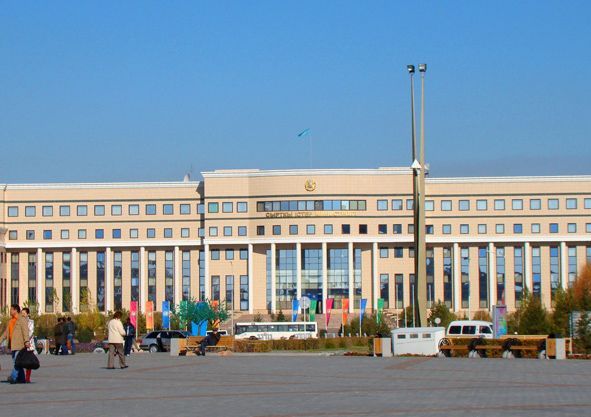Central Asian nations concerned about Armenian-Azerbaijani border escalation

By Sabina Mammadli
The border between Azerbaijan and Armenia hasn't been demarcated, and therefore it's hard to talk about any violation of the border, Kazakh Deputy Prime Minister Mukhtar Tleuberdi said.
According to Tleuberdi, the primary task is to resume the work of the joint commission on the delimitation and demarcation of the Armenian-Azerbaijani border.
"We are ready to share our experience. Since we have demarcated our border along the entire perimeter of the land and even sea border, the demarcation is almost completed with all states except Russia. Demarcation with Russia will probably take us another two-three years," he said.
The Uzbek Foreign Ministry stated that as a chair of the Shanghai Cooperation Organization, it welcomes the achievement of a peace treaty and an end to the escalation on the Azerbaijani-Armenian border.
The ministry noted that the only right way to solve problems in the current situation would be peaceful negotiations and consultations on the basis of international law and within the framework of previously reached agreements.
Similarly, Tajikistan urged the sides to resolve the situation on the border through diplomacy.
Tajik Prime Minister Kokhir Rasulzoda said this while speaking at an extraordinary online session of the Collective Security Treaty Organization (CSTO).
He expressed the concern of the Tajik side about the escalation of the situation on the border, and stressed that "it is important to prevent further aggravation of the situation and return to the solution of problems through the political and diplomatic channels as soon as possible".
The head of the Tajik Cabinet expressed confidence that the only way to ensure peace and stability in the region is the effective use of the means of dialogue based on the adopted documents.
Additionally, Kyrgyz President Sadyr Japarov called on Armenia and Azerbaijan to resolve the conflict through political and diplomatic means, expressing Kyrgyzstan's extreme concern about the escalation.
To recap, units of the Armenian armed forces carried out large-scale provocations along the Azerbaijani-Armenian state border in the Dashkasan, Kalbajar, and Lachin directions during the night of September 13. At night, Armenian sabotage groups mined land and supply roads linking the positions of the Azerbaijani army units in different directions, taking advantage of the area's steep topography and existing ravine gaps.
The clashes between the sides ensued as a result of the urgent efforts made by the Azerbaijani armed forces to quell these activities.
The Azerbaijan military units stationed in these areas took decisive retaliatory measures to suppress the provocations of the Armenian armed forces and military threats to Azerbaijan's territorial integrity and sovereignty, as well as to ensure the safety of military personnel, including civilian workers involved in infrastructure construction in Kalbajar and Lachin districts, the ministry emphasized.
---
Sabina Mammadli is AzerNews’ staff journalist, follow her on Twitter: @SabinaMmdl
Follow us on Twitter @AzerNewsAz
Here we are to serve you with news right now. It does not cost much, but worth your attention.
Choose to support open, independent, quality journalism and subscribe on a monthly basis.
By subscribing to our online newspaper, you can have full digital access to all news, analysis, and much more.
You can also follow AzerNEWS on Twitter @AzerNewsAz or Facebook @AzerNewsNewspaper
Thank you!
